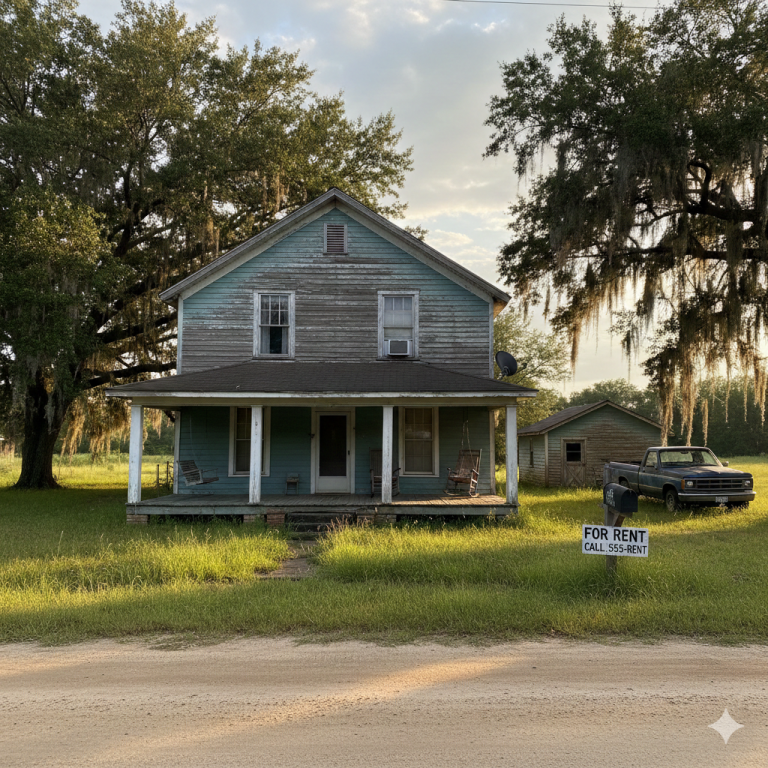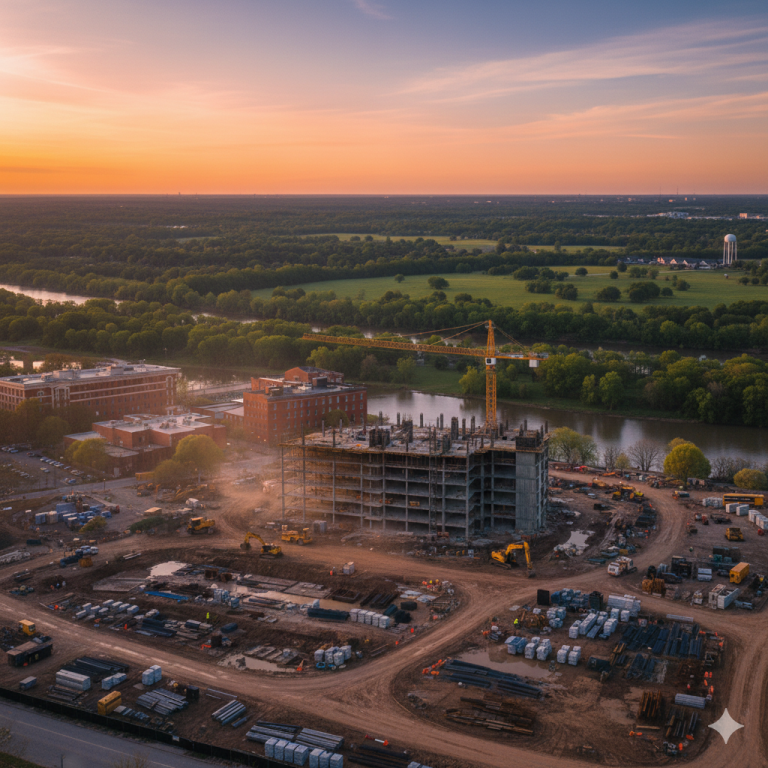Contributing Author & Editorial Review
This article was crafted and reviewed by experienced professionals to ensure accuracy and practical insight.


DSCR Rental Loan Highlights
- Qualification based mainly on property cash flow (DSCR).
- No personal income docs required for many programs.
- Financing for 1–8 unit rentals, portfolios, and many STR/Airbnb deals.
- Up to 80% LTV on purchases and 75% LTV on cash-out (program-dependent).
- 30-year fixed and interest-only options available.
Denver – November, 2025: When evaluating a real estate investment, one of the most critical metrics is the cash-on-cash return. This powerful percentage tells you how much money your investment is generating relative to the cash you’ve actually invested. Unlike other metrics that focus on a property’s overall value, cash-on-cash return zeroes in on the most important factor for an investor: the return on your direct, out-of-pocket cash.
This guide will provide a comprehensive breakdown of how to calculate cash-on-cash return for a rental property, equipping you with the knowledge to make smart, data-driven decisions. We’ll also explore how GHC Funding’s specialized loan products, like the DSCR loan, can maximize this return and help you build a profitable portfolio.
Guide for Cash-on-Cash Return for Rental Property:
The Formula: A Simple Path to Powerful Insights
The formula to calculate cash-on-cash return (CoC) is straightforward:
Need capital? GHC Funding offers flexible funding solutions to support your business growth or real estate projects. Discover fast, reliable financing options today!
⚡ Key Flexible Funding Options:
GHC Funding everages financing types that prioritize asset value and cash flow over lengthy financial history checks:
DSCR Rental Loan
- No tax returns required
- Qualify using rental income (DSCR-based)
- Fast closings ~3–4 weeks
SBA 7(a) Loan
- Lower down payments vs banks
- Long amortization improves cash flow
- Good if your business occupies 51%+
Bridge Loan
- Close quickly — move on opportunities
- Flexible underwriting
- Great for value-add or transitional assets
SBA 504 Loan
- Low fixed rates through CDC portion
- Great for construction, expansion, fixed assets
- Often lower down payment than bank loans
🌐 Learn More
For details on GHC Funding's specific products and to start an application, please visit our homepage:

Cash-on-Cash Return=Total Cash Invested/Annual Pre-Tax Cash Flow×100
Let’s break down each component:
- Annual Pre-Tax Cash Flow: This is the total amount of money you have left over after all of your property’s operating expenses and mortgage payments are paid, before accounting for taxes.
- Annual Gross Income: Start with the total annual rent and any other income streams (e.g., laundry, parking fees).
- Annual Operating Expenses: Subtract all yearly expenses, including property taxes, insurance, maintenance, property management fees, and vacancy reserves.
- Annual Debt Service: Subtract your annual mortgage payments (principal and interest).
- Total Cash Invested: This includes all the money you put into the deal out-of-pocket, such as:
- The down payment.
- Closing costs.
- Initial repair or renovation costs (if any).
- Any other one-time expenses required to acquire the property and get it rent-ready.
Example:
Imagine you buy a property for $300,000.
- Total Cash Invested: You put down a 25% down payment ($75,000) and pay $10,000 in closing costs and initial repairs. Your total cash invested is $85,000.
- Annual Pre-Tax Cash Flow: The property generates $36,000 in annual gross income ($3,000/month rent). After subtracting annual expenses (e.g., property management, taxes, insurance, maintenance) of $12,000 and annual mortgage payments of $15,000, your annual pre-tax cash flow is $9,000.
Using the formula:
Cash-on-Cash Return = ($9,000 / $85,000) x 100 = 10.58%
A higher cash-on-cash return indicates that your initial investment is generating a greater percentage of return, which is a key goal for investors seeking to build wealth quickly and efficiently.
The Ultimate DSCR Loan for Rental Property Quiz

Are you looking to expand your real estate investment portfolio? A DSCR loan might be the perfect tool to help you achieve your goals without relying on traditional income documentation. Test your knowledge with this quiz to see if you're ready to master the intricacies of a DSCR loan for rental property.
The Colorado Market: A Landscape for Smart Investing
Colorado’s stunning natural beauty and booming economy have made it a highly desirable place to live, which in turn fuels a dynamic real estate market. A smart investor can capitalize on this by focusing on key cities and specific investment scenarios.
- Denver: As the state’s economic and cultural hub, Denver offers a strong rental market. Look for opportunities in rapidly appreciating neighborhoods like RiNo (River North Art District, zip code 80205) or the established residential areas of Washington Park (zip code 80209). While prices are high, finding a value-add single-family home or a duplex with a basement unit can create significant cash flow. The city’s strong employment base in technology, aerospace, and healthcare ensures a steady stream of high-quality tenants.
- Colorado Springs: Known for its military presence (Peterson Air Force Base, Fort Carson) and thriving tourism industry, Colorado Springs offers a more affordable alternative to Denver. Target areas with high rental demand, such as those near military bases or the University of Colorado at Colorado Springs (UCCS). Single-family homes and small multi-family properties can be found at a price point that supports a healthy cash-on-cash return.
- Boulder: While known for its high property values, the city of Boulder, with its robust tech and research economy and the University of Colorado, presents unique opportunities. A savvy investor might look for off-market properties or a multi-unit property near the university to cater to student housing demand. While a higher initial investment is required, the potential for high rents can still result in a strong return on cash.
The Ultimate Quiz on Going Passive in Real Estate

Are you ready to transition from an active landlord to a savvy, passive real estate investor? True success in "Going Passive in Real Estate" isn't just about buying property; it's about smart strategies and leveraging the right tools to build wealth without the daily grind. This quiz is designed to test your knowledge on the key concepts that separate the hands-on hustlers from the hands-off investors. See how well you understand the fundamentals of building a truly passive income stream through real estate
The Financing Component: How GHC Funding Maximizes Your CoC Return
The amount of cash you invest directly impacts your cash-on-cash return. The less cash you put down, the higher your potential CoC return can be. This is where GHC Funding provides a critical advantage, offering flexible financing options like DSCR Loans that empower you to leverage your capital effectively.
The DSCR Loan: Your Catalyst for High Returns
For investors focused on cash flow, the DSCR (Debt Service Coverage Ratio) Loan is an ideal financing tool. Unlike a traditional bank loan that requires extensive personal income verification and has strict debt-to-income (DTI) requirements, a DSCR loan qualifies the property itself.
Current Market Insights (as of September 18, 2025):
- Interest Rates: DSCR loan rates are subject to market conditions and typically range from 7.25% to 9.75%. These rates are influenced by factors like your credit score, the property’s DSCR, and the loan-to-value (LTV) ratio.
- DSCR: Lenders look for a DSCR of 1.20 or higher, meaning the property’s net operating income is at least 20% greater than its mortgage payment.
- LTV: GHC Funding offers competitive LTVs, often up to 80%, which means you can put less cash down.
Key Requirements and Benefits:
- No Personal Income Verification: The biggest benefit is that we don’t need to see your tax returns, pay stubs, or W-2s. This allows you to scale your portfolio without personal income holding you back.
- Asset-Based Underwriting: We focus on the property’s ability to generate income, not your personal financial situation. This streamlines the process and allows for faster closing times.
- Entity Lending: Loans are made to an LLC or business entity, which provides a layer of legal protection and simplifies your tax reporting.
- Property Eligibility: DSCR loans are available for a wide range of properties, including single-family rentals, multi-family properties (up to 4 units), and even short-term rentals.
Test Your Colorado Investor Acumen!

Colorado, the "Centennial State," is renowned for its breathtaking Rocky Mountain landscapes, vibrant cities, and thriving economy fueled by tech, tourism, and aerospace. This unique blend makes it a highly attractive market for real estate investors. If you're considering entering the Colorado investment scene, perhaps with flexible financing solutions like no income verification rental property loans for new investors, understanding the state's distinct characteristics is a valuable asset.
How well do you know the Mile High State? Take our quick quiz about Colorado!
External Resources for Colorado Real Estate Investors
To succeed in the Colorado market, it’s crucial to stay informed and connected. Here are some high-quality external resources to assist you:
- Colorado Division of Real Estate: A must-know for any investor. This is the official state body that regulates real estate professionals and can provide information on licensing, laws, and regulations. https://dre.colorado.gov/
- Colorado Real Estate Investment Club (CO-REIC): Networking is key to finding deals. Groups like CO-REIC offer opportunities to connect with other investors, learn new strategies, and discover off-market opportunities. https://www.meetup.com/colorado-real-estate-investors-association-colorado-reia/
- Colorado Housing and Finance Authority (CHFA): While its focus is on affordable housing, CHFA provides valuable data on market trends and community needs that can help you identify underserved areas for investment. https://www.chfainfo.com/
- Local County Assessor Websites: Every county in Colorado has an assessor’s website (e.g., Denver County Assessor, Boulder County Assessor) where you can research property tax records, ownership history, and assessed values, all of which are critical for your due diligence.
Quiz on Colorado Rental Property Laws

This quiz will test your knowledge of the essential laws and regulations for owning and managing a Colorado rental property. By understanding these rules, you can protect your investment and ensure legal compliance.
Q&A: Your Cash-on-Cash Return Questions Answered
1. What is a good cash-on-cash return?
While this can vary by market and investment strategy, a strong cash-on-cash return is generally considered to be in the 8% to 12% range. However, some investors may accept a lower return in a high-appreciation market or a higher return in a cash-flow-driven market.
2. What’s the difference between cash-on-cash return and ROI?
Cash-on-cash return measures the return on the actual cash you invested. Return on Investment (ROI), a broader term, measures the total return (including appreciation and loan paydown) on the total value of the investment, not just your cash. For a leveraged investment, cash-on-cash is the most powerful metric for understanding your immediate return.
3. How can GHC Funding’s DSCR loan help me achieve a higher cash-on-cash return?
A DSCR loan from GHC Funding allows you to finance up to 80% of the property’s value. By using a smaller down payment, you reduce your “Total Cash Invested” number, which directly increases your cash-on-cash return according to the formula.
4. Can I get a DSCR loan for a multi-family property?
Yes, DSCR loans are available for a wide range of properties, including single-family rentals and multi-family properties up to 4 units. GHC Funding also provides financing for larger commercial and apartment buildings through our other loan programs.
5. What if the property’s DSCR is below 1.20?
If a property’s DSCR is below 1.20, it may not qualify for a DSCR loan. This can signal that the property’s income is insufficient to cover its expenses and debt, making it a potentially risky investment. However, our flexible underwriting may be able to provide a solution, such as a larger down payment.
6. Do DSCR loans have prepayment penalties?
Many DSCR loans come with a prepayment penalty, which means you pay a fee if you pay off the loan early. GHC Funding offers various loan terms and can help you select a product that aligns with your investment horizon, whether it’s a long-term buy-and-hold or a shorter-term plan.
7. Is cash-on-cash return the only metric I should use?
No. While cash-on-cash is a vital metric, you should also analyze a property’s cap rate, net operating income (NOI), and potential for appreciation. A holistic approach to analysis is key to making a sound, long-term investment.
Get a Free Rate Today
Compare our top-rated commercial and investment property loan programs below.
- No income verification
- 30-year fixed | Interest-only available
- Great for rental properties + STR
- Fast approvals
- Working capital + business acquisition
- Up to $5M
- Low down payment
- Long-term financing
- Owner-occupied CRE
- Low fixed rates | 25-year terms
- Great for business expansion
- Refinance available
- Best for stabilized properties
- Competitive rates
- 12–25 year terms
- Lower fees than private lenders
Compare Loan Types
Find the Right Financing for Your Real Estate or Business Project
| Loan Type | Best For | Rates | Terms | Highlights | Apply |
|---|---|---|---|---|---|
| DSCR Loan | Rental properties (LTR & STR) | 5.99%+ | 30-year fixed, IO options | No income docs, fast approvals, great for investors | Check My Rate |
| Construction Loan | Ground-up, fix & build, major renovations | 8%–12% depending on scope | 12–24 months interest-only | Flexible draws, great for builders & developers | Get a Quote |
| SBA Loan | Business acquisition, working capital, CRE | Prime + spread | 10–25 years | Lowest down payments, long terms, best for business growth | See My Options |

The Funding Options for New Entrepreneurs Now
Discover diverse funding options for new entrepreneurs to escape corporate life and launch your business successfully.
Read more →
The SBA 7(a) vs 504 Loan in Mississippi Now
GHC Funding Website Published: March 3, 2026 Categories: blog Reading Time: 3 minutes read Understanding SBA 7(a) vs 504 Loans: What Mississippi…
Read more →
Get a DSCR Loan Calculator in Mississippi Now
GHC Funding Website Published: March 3, 2026 Categories: blog Reading Time: 3 minutes read Understanding DSCR Loan Calculators with Taxes and Insurance…
Read more →
Get a Construction Loan in Mississippi Now
GHC Funding Website Published: March 3, 2026 Categories: blog Reading Time: 3 minutes read How to Get a Construction to Permanent Loan…
Read more →
How to Start a Business with No Money
Discover how to start a business with no money and escape the corporate grind with actionable tips and strategies.
Read more →
SBA Loan Requirements for Startups in Mississippi Now
GHC Funding Website Published: March 3, 2026 Categories: blog Reading Time: 4 minutes read SBA Loan Requirements for Startups in Mississippi: A…
Read more →Your Path to Maximum Returns
Understanding how to calculate cash-on-cash return for a rental property is your first step toward building a successful real estate portfolio. The second step is partnering with a lender that understands your goals and provides the flexible, fast financing to help you achieve them.
GHC Funding is that partner. With our specialized loan products, expert market knowledge, and commitment to a streamlined process, we are ready to help you acquire your next cash-flowing property.
Ready to maximize your returns? Visit GHC Funding at www.ghcfunding.com to learn more about our loan programs or call us at 833-572-4327 to speak with an investment property expert today.
Get a DSCR loan quote in Colorado.
Get a No Obligation Quote Today.
Use these trusted resources to grow and manage your small business—then connect with GHC Funding
to explore financing options tailored to your needs.
GHC Funding helps entrepreneurs secure working capital, equipment financing, real estate loans,
and more—start your funding conversation today.
Helpful Small Business Resources

